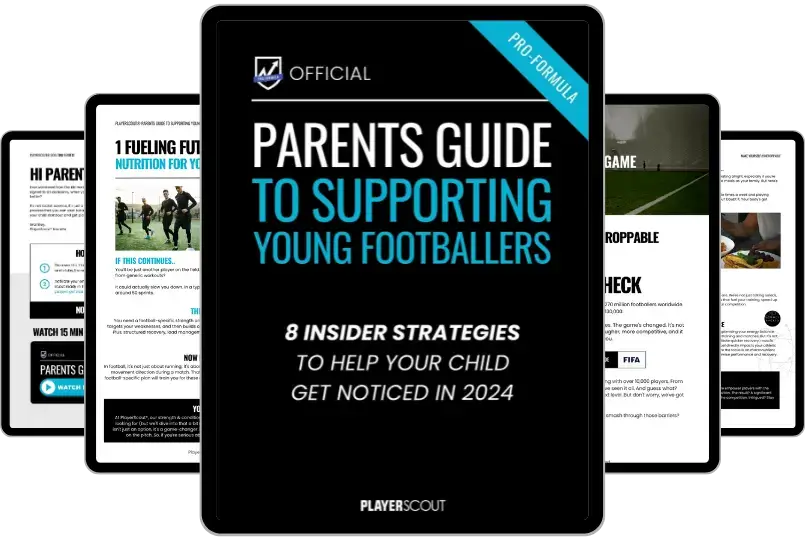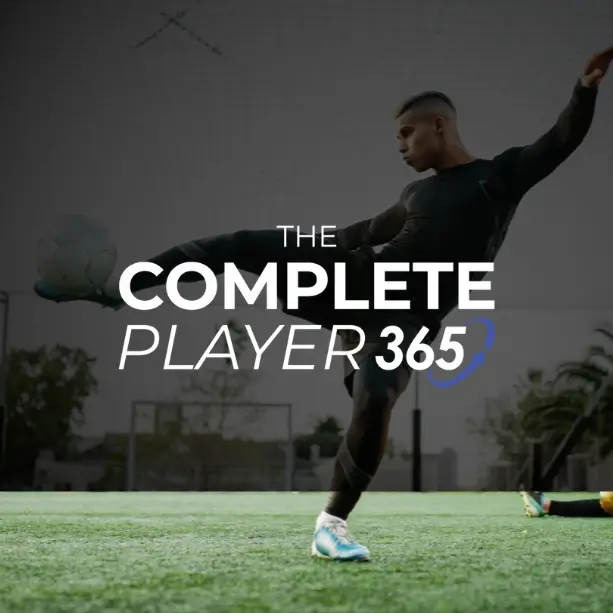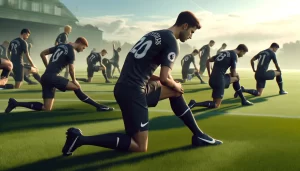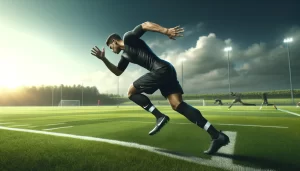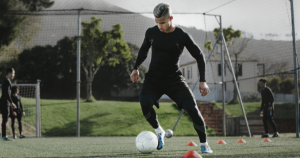"In the case of the elite athlete, through their involvement in recreational sport, older siblings may have acted as socialising agents, encouraging the athlete's initial participation in sport
Stevenson, 1990 Tweet
Later on, to differentiate themselves, the athlete may have selected a sport their older sibling did not play and attempted to outperform them
Sulloway, 1996 Tweet
How does having older siblings affect your chances of progressing in football?
As you can see, there is strong evidence to suggest that having an older brother or sister may improve your chances of getting scouted. But what are the real reasons? Below we’ll discuss the areas that may improve from growing up around older siblings.Ready Made Role Models to Learn From
There is an argument that the best form of learning is peer-to-peer learning. Allowing a child to gain experience and knowledge by working or playing with a child who is slightly more advance can be very effective. This is no different in football. A football coach can make a huge difference in the football development of a young child, but watching and playing with an older sibling at a park or in the playground can also have huge benefits. Playing an unsupervised, unstructured kick about in the park with a mixed age group of players and abilities can help develop a players learning and leadership abilities. This is also evident in a family situation in which younger siblings can learn by watching an older sibling. These siblings can be role models to younger children, providing a snapshot into what the future may hold. They can also provide much-needed guidance and knowledge in the situation which enables a younger sibling to learn at a faster pace. In most cases, a younger sibling will look up to their older sibling and want to be like them. Whether is playing the same games, wearing the same outfits or having later bedtime or curfew. Therefore… An older sibling can work as a motivation tool to help push the younger sibling forward and prepare them for future challenges.Inner Resilience Built
Often a younger sibling must create a thick skin and an independent nature at an early age. This is perhaps due to a parent having less time to devote to just one child, and the younger child having to independently work things out for themselves more than the first born child. This is also evident in coping with losing and failure. Most often the younger sibling is more likely to lose at during games and tasks against their older more advanced siblings. Therefore… They must learn to never give up when the outcomes are usually inevitable. In these cases the younger sibling may create milestones such as winning a single point, scoring one goal or making a certain amount of tackles. This is their own version of winning, rather than the overall score. This independence enables the younger sibling to take on new challenges and succeed without the need for parental encouragement. An example of this could be the influence that Rio Ferdinand had on younger brother Anton Ferdinand. Who both went on to play in the Premier League. At a younger age Anton wouldn’t have been able to keep up with brother Rio, however, the pathway to the professional game would have been laid out as he watches his older brother go on to captain England.Developing Speed and Acceleration
There are many who believe having an older sibling will help to improve your speed and acceleration. Although the evidence is not conclusion a study highlighted in Daniel Coyle book The Talent Code gives a valid argument. Coyle assessed the family background and birth order of the 10 most recent 100-meter record holders.- 1. Usain Bolt (2nd of 3 Siblings)
- 2. Safa Powell (6th of 6 Siblings )
- 3. Justin Gatlin (4th of 4 Siblings)
- 4. Maurice Greene (4th of 4 Siblings)
- 5. Donovan Bailey (3rd of 3 Siblings)
- 6. Leroy Burrell (4th of 4 Siblings)
- 7. Carl Lewis (3rd of 4 Siblings)
- 8. Leroy Burrell (4th of 4 Siblings )
- 9. Carl Lewis (3rd of 4 Siblings)
- 10. Calvin Smith (6th of 8 Siblings)
More Experienced Parents
In most cases, parents are often more strict with their first born child and seem to lay off the reigns as they get further down the birth order. This is because the parents have been there and done it with the first child and understand more about what it takes to be a parent. They often allow a child to develop at their own rate, with less pressure and instruction and this seems to have a positive effect on the football field. Parents who shout and dictate from the sideline more often do more damage than good, leaving their child looking to them for guidance in situations of uncertainty. Rather than problem-solving them. However, this is with children who are towards the lower end of the birth order, where these parents are more aware of the highs and lows of youth development and offer encouragement rather than negativity if mistakes are made.But what if you are the first born?
Do not threat is if you are the oldest, hope is not lost. There are still cases where first Born’s have gone on to do great things in football. One of which we mentioned earlier, Rio Ferdinand.
In an article called Letter to My Younger Self, Rio explains how he created his own older brother situation by playing with older kids and players from around his area. This ensures he was still getting the benefits of playing with older more advanced players and improve his all round game.



